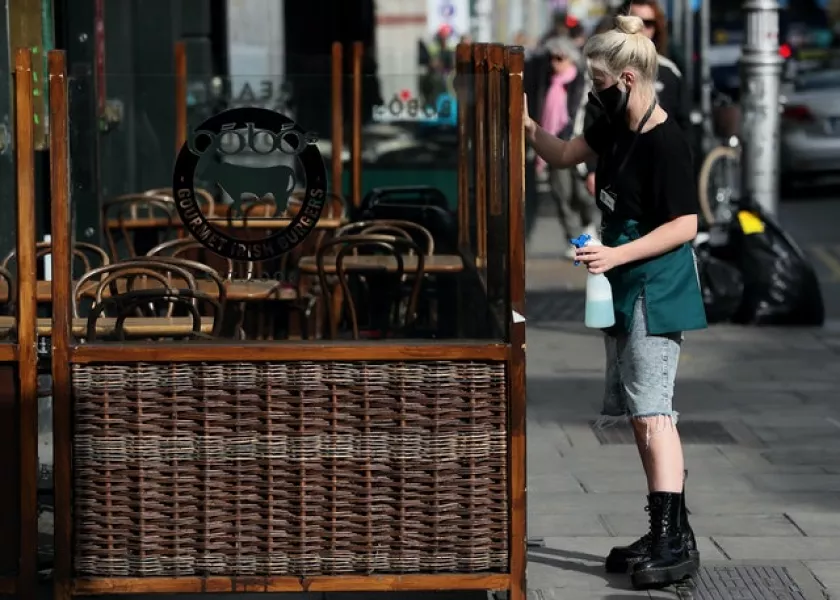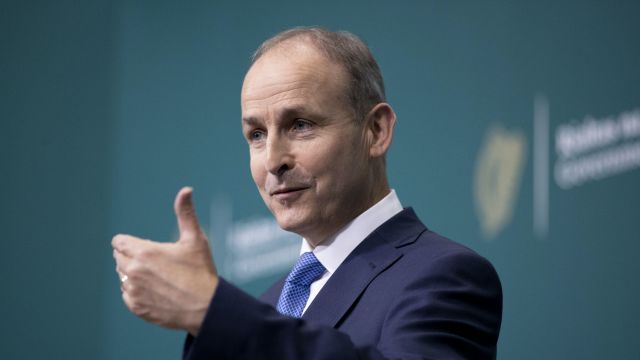Mr Martin was speaking as Dublin enters three weeks of tighter restrictions designed to combat a surge in cases.
Earlier this week, acting chief medical officer Dr Ronan Glynn warned that the coronavirus situation had “deteriorated nationally”.

He said 50 per cent of Thursday’s cases were in Dublin.
On Saturday, 274 new cases of the virus were confirmed in the previous 24-hour reporting period by the National Public Health Emergency Team, of which 166 were in Dublin.
From midnight on Friday non-essential travel is being discouraged to and from the capital, visits to private homes have been capped at six people from one household and indoor dining at eateries has been stopped.
Mr Martin revealed he is worried about the situation in Dublin, describing numbers as rising “exponentially”.
He has urged the public to abide by the new rules, adding that recent regional lockdowns in counties Kildare, Laois and Offaly worked.
Dublin has been placed at risk Level 3 of the Government’s blueprint plan to deal with the virus, while the rest of the country remains at Level 2.

The Taoiseach said Level 3 is “not a lockdown” and is “nowhere near the lockdown we had”, with retail, education and construction still open and people not restricted to a five kilometre limit.
“There is one sector that is taking a terrible hit and that is hospitality, tourism, travel and aviation,” he told RTÉ.
“That whole area is the one most impacted, not just here but across the world.
“No government is going to stop the virus on its own, it’s a collective effort, and it is a very dangerous virus.
“It’s a one in a 100 year event. It’s affecting how we do things, it’s upending all our lives, how we behave. We don’t shake hands any more. Who would have thought a year ago we would be doing this?”
Mr Martin said Ireland was in a “better place than most”.
“Scotland were on to Ireland last week, we helped them out with lab capacity,” he said.
“There is deep trouble in the United Kingdom, there’s huge pressure globally on the testing kits. We’re up to 15,000 capacity a day, we have done a lot of testing in nursing homes and in meat plants, and so far the positivity rate is very low.”

Meanwhile Mr Martin conceded the coalition government had taken too long to be formed earlier this year following the inconclusive general election result.
“I think that period went on too long … it was difficult and challenging,” he said.
“The whole policy formulation, negotiating a programme for government, Covid itself in terms of social distancing and how long you could meet for, and then the interim government had to deal with Covid.”
He described his relationship with tripartite coalition partners, Fine Gael leader Leo Varadkar and Green Party leader Eamon Ryan, positively.
“We get on very well on a personal level, and with Eamon Ryan the three of us, we have a great facility to pick up the phone if we think there is something wrong,” he said.
“Leo interrogates issues and will give different perspectives on issues and he’ll weigh it up in his own mind and speak this out – which I think is a healthy thing.
“In politics there is a lot of noise going on around the bubble, I tend to focus on the substance of the policy and I want to get things done.”







